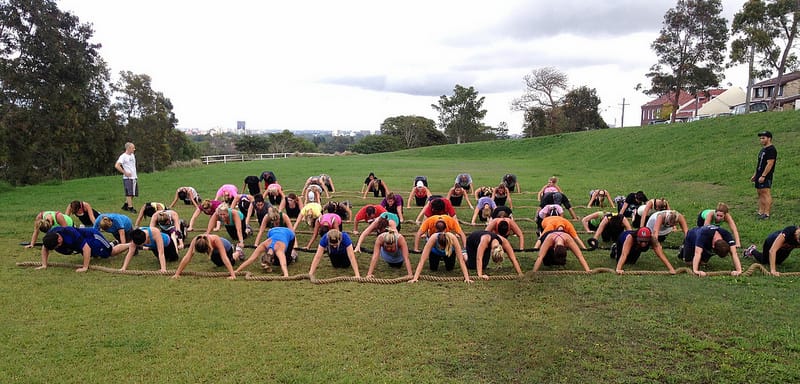Chances are you are going to want to exercise away when you learn that Colon Cancer can be caused by lack of physical activity. That’s a fact.
The National Cancer Institute in the U.S. revealed that their studies show that participants who reported for exercise for 18 hours or more a week reduced their chances of death by colon cancer by 61 % and death by other causes by 57 %.
Colon Cancer is also called as Bowel cancer or Colorectal cancer. It is the second biggest cause of cancer deaths in Australia. Seventy five out of two hundred seventy seven people diagnosed with this cancer die from it. 90% can be cured if diagnosed and treated early, but why wait till you have the disease when you can prevent yourself from acquiring it?
Exercise can also help those who have gone through surgery for bowel cancer to recover and the studies have reflected that it can also prevent the illness from recurring.
Men are more prone to this kind of cancer. It starts with polyp growths in the colon that can turn cancerous if untreated. Dr. Anne McTiernan, Internist and Epidemiologist for Fred Hutchinson Cancer Center in Seattle, Washington warns that even cells, the ones that are abnormally multiplying in the colon can turn into polyps that can eventually turn into bowel cancer.
Dr. McTiernan studied a group of a hundred and twenty men at higher risk for colon cancer. Dividing the group in two, one group was made to exercise for an hour for six days a week for one year while the other group wasn’t required to do much physical activity. The results of biopsies at the end of the research period showed that the abnormal cells of the men who participated in the exercise activities decreased considerably while there were no improvement for those who remained sedentary.
Many other cancer institutions have done their own studies and research on the matter.
Here’s an excerpt from an article published in Yahoo! News on a recent study on colon cancer and exercise:
In the study, every 10 METs per hour increase in physical activity was associated with a 7 percent reduction in the risk for CTNNBI-negative colorectal cancer. People who accumulated about 18 MET hours per week in exercise, saw approximately a 20- to 30- percent reduction in risk, said Ogino, who is also an associate professor in the department of epidemiology at the Harvard School of Public Health. That’s the equivalent of about 30 minutes of moderate-intensity-physical-training on most days of the week.
Exercise has proven itself beneficial in a lot of ways, not just in a person’s shape and size but significantly, in people’s health.
Don’t just work on your weight loss, give your health a good fight against cancer with exercise. Sign up with any of our Sydney Bootcamps.







